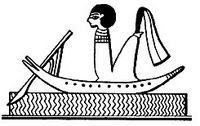Soul care includes listening to the body's desires
In her post, Hemmila shares, "I'm pretty sparse when it comes to material possessions — like a vagabond with only the essentials in my pack. However, my soul wants to wear layers and layers of jewelry and in particular necklaces. The weight, feel, and energy against my chest is so important to me, but I had never allowed myself to indulge in this kind of lavishness. Maybe I'd wear some simple earrings in the past, but apparently layers of gems and precious metals is incredibly important to my soul."
She connects this revelation with "Now I see that this past year and a half of choosing to design for only myself, was a way for me to cultivate a relationship with and care for the deepest parts of my soul. So if you are an artist that has a tendency to want to bring others happiness by going along with their desires, and you feel disconnected from your work, I hope you take an opportunity to step back and see what your soul wants to be making."
Labels: Care of the Soul





